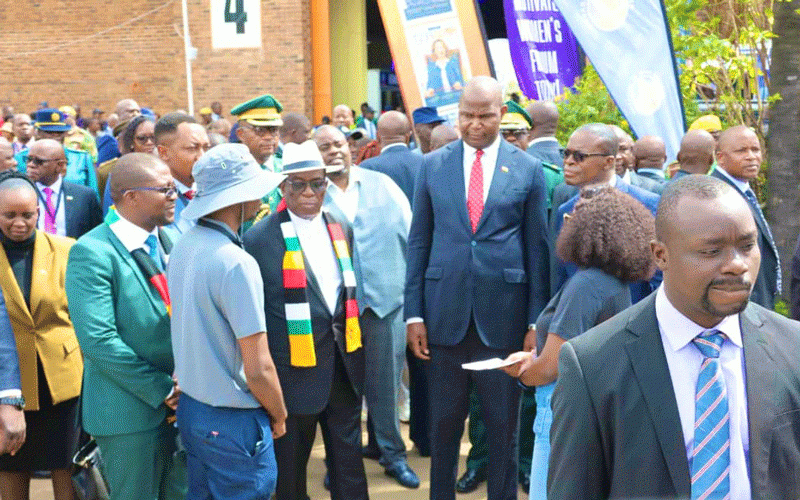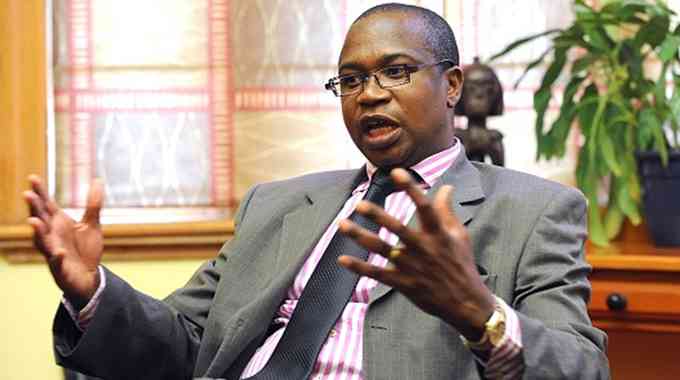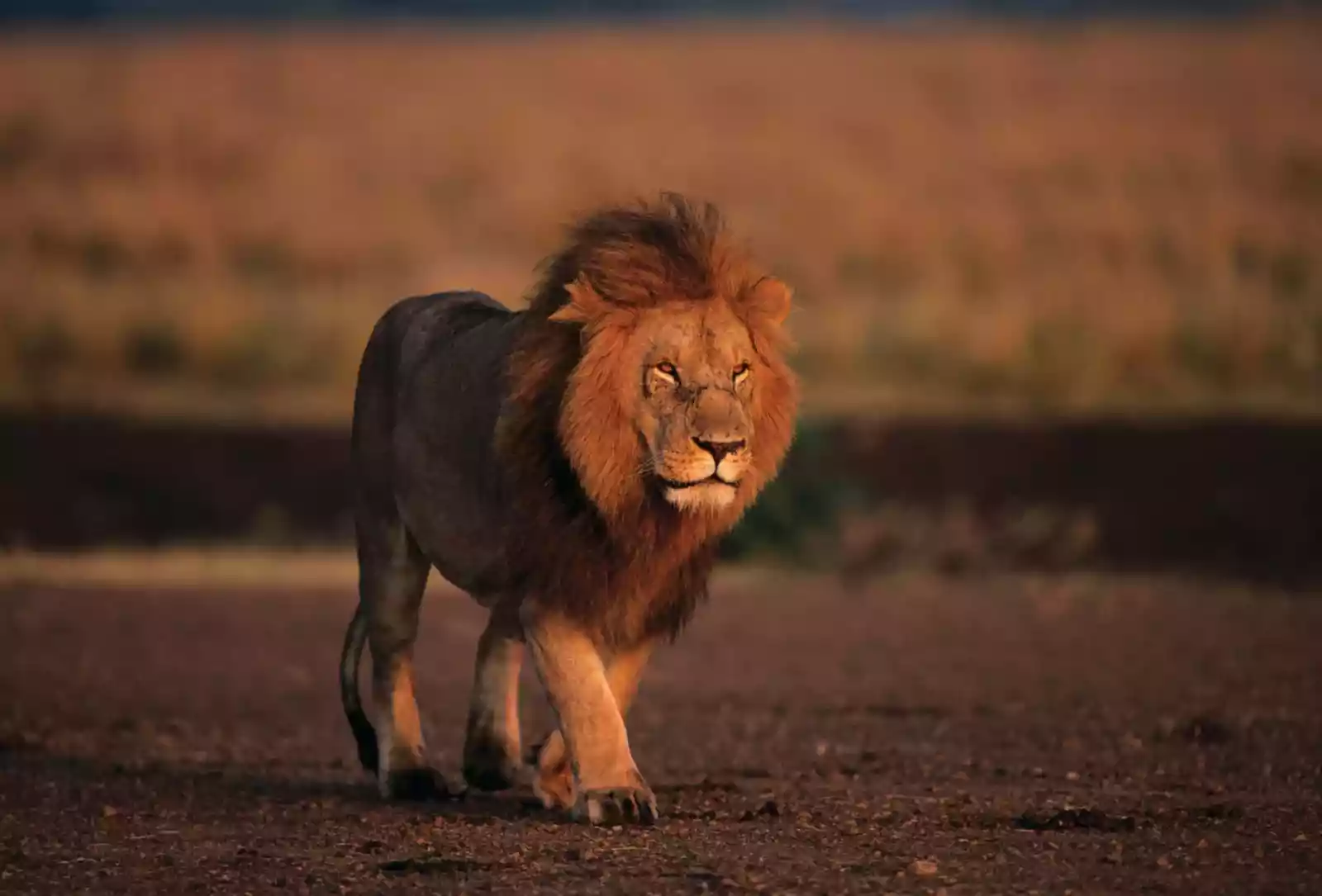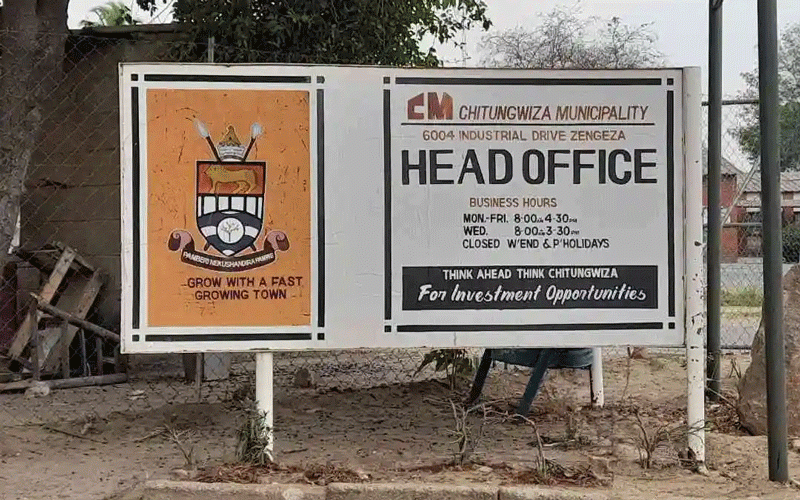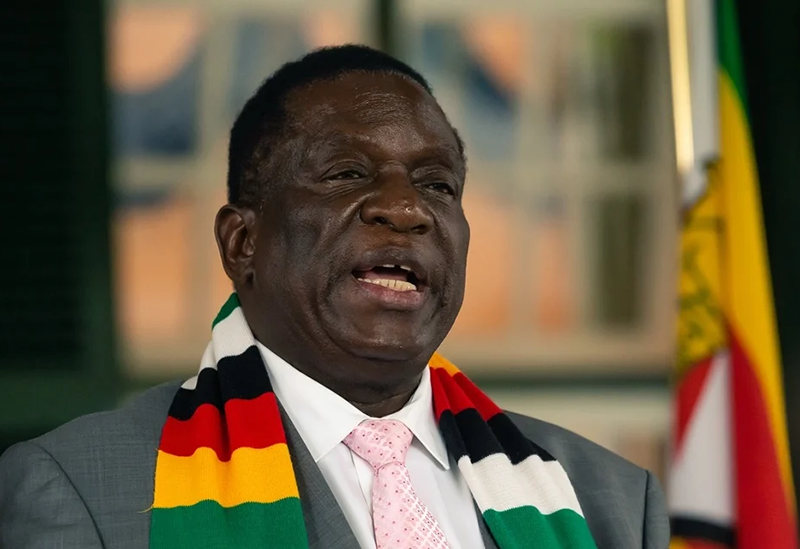Investec senior investment director Jimmy Muchechetere says he left Zimbabwe because he could not make ends meet despite having five jobs at the same time.
Muchechetere (JM), who is a trained medical doctor, made the revelations on the platform In Conversation with Trevor UK Series hosted by Alpha Media Holdings chairman Trevor Ncube (TN).
Below are excerpts from the interview.
TN: Greetings! Welcome to In Conversation With Trevor UK Series brought to you by HSTV in partnership with the Nyaradzo Group. Dr Jimmy I have been looking forward to this conversation because you are a crazy guy, but welcome to the show.
JM: Thank you. It's fantastic being here. It's a real pleasure for me to be here.
TN: So you are a registered medical doctor who is a chartered financial analyst.
You have kept your medical registration going on for the past seven years, but you are essentially in the financial services sector.
I'm going to start by asking you what have been the most defining moments in your life?
JM: The most defining moments of my life certainly as a professional have had to change countries.
You grow up in Zimbabwe, you learn how things are done in Zimbabwe and then you come to a completely different country and they have a very different way of doing things, so you have to be able to learn quickly and adapt and get into the floor of things as they are. So that was the biggest challenge that I had.
TN: Why did you have to leave Zimbabwe? How did you leave Zimbabwe?
JM: I left Zimbabwe because of one word, hyperinflation. If you remember the times when things became very difficult in the mid-2000s, a lot of people were leaving Zimbabwe.
I had just graduated as a medical doctor.
I did two years at Harare Hospital, and I'm sure the same is true now you would think a doctor would be comfortable in terms of financial well-being, but it wasn't.
I used to work five jobs while I was in Zimbabwe and even then as a single guy I still could not make ends meet. So the time came for me to try something.
TN: So you were running around hospitals, clinics and whatever?
JM: Yes. I used to work at Harare Hospital, that was my primary job. It's called locum where you are standing in for someone else in Waterfalls, which wasn't too far.
So I could kind of do those things in tandem and then after work, as it were, I had a surgery that I went to in Kuwadzana and then at the weekends because my parents lived in Zimre Park, which is close to Ruwa just outside Harare I would go and work there as well on the weekends.
I used to work at the Cimas clinic so that's four jobs and then on a Sunday I used to work at the Harare Race Course.
At the race course, there is always an ambulance, the ambulance will follow along with the horses.
So I used to work Monday to Monday, every day and even then it still wasn't enough.
TN: You couldn't make ends meet?
JM: I could not make ends meet so I got to a point where I had to do something and because I was single I could take the risk and go away and try something different and if it failed I could always come back.
TN: Talk to me about that; the thought process of five jobs. Talk to me about that and the decision to say I think I need to get up and go?
JM: It was a question of I had invested so much time and energy into this process.
For those who don't know, you have to study for five years and then once you have qualified, which is a very hard degree to be honest, you have to do two years as a junior doctor after which you then effectively become a registered doctor.
Normally, after those two years, you have to go to a district hospital and spend a year there and then you are given a free license to do whatever you want to do.
So I had invested a lot already and I couldn't see any promise that things were going to change any time.
So like most people I wanted to specialise, I wanted to better myself, improve myself.
I was still young and had a lot more to give, but the opportunity just wasn't there.
So it was a question of saying do I just go with the floor or do I engineer an opportunity for myself.
TN: So you engineered an opportunity, how did you do that?
JM: Well it was an accident, I never would have imagined that I would end up working in London, in the finance sector, never in a million years but what happened was that a lot of people were living in Zimbabwe during that time if you remember around 2007.
A lot of people had left, you didn't need a visa to come to the United Kingdom as an example but even after that people still left but doctors couldn't leave because there is a special letter that you get from your regulator, your health regulator which allows you to be able to register with a different regulator.
Now that letter normally you just go to your regulator and you say this is me and then they give you the letter no problem, but they decided to say you are not going to easily get that letter because you know they have invested a lot in us, training us as Zimbabwean doctors, you know and if all the Zimbabwean doctors left then you know what's going to happen to the people in Zimbabwe?
It takes seven years to train another doctor. So they were not going to make it easy.
So what happened was that there was an opportunity to move to some Sadc countries that did not train their own doctors .
For example, you couldn't go to South Africa, you couldn't go to Zambia or Malawi but there were countries such as Swaziland and Lesetho where they didn't have their own medical training facilities and so you know they were obviously looking for doctors to come in so that's what happened and it ..
TN: So happened, so where did you go you went to Swaziland?
JM: I went to Lesotho. I wasn't the first one to go to Lesotho.
I had never heard of it, you know, maybe during geography in high school but a few of my more enterprising friends decided to go to Lesotho and then they gave me a ring and they said Jimmy ‘what are you still doing there’ and I remember I called my mom while I was on the bus to Lesotho and said ‘mom, I'm gone.
I'm going to Lesotho. She said what? I said you know I have reached the end of my way, this is just not working so…
TN: What does Mom say?
JM: She was very supportive. Both mom and dad were very supportive just to make sure if things don't work out, I can just come back home.
TN: So you get to Lesotho what then happens there?
JM: So I get to Lesotho and there is a funny story really because these friends of mine had been in Lesotho maybe for two or three months and we are coming from Zimbabwe where we are really struggling.
So I get there and I'm staying in one of their houses and then I said can I make a cup of tea, they said yeah go ahead head.
So I went and boiled the water and I'm looking for the milk and I said Taps ‘where is the milk?’. He says ‘check in the fridge.’
I go in the fridge and from top to bottom it is full of Heineken and the reason why it was full of Heineken is because you could not afford it in Zimbabwe and all of a sudden it's cheap, and so they are living the life.
The fridge is stocked with something that's available, but it was one of those where we knew we were there for a job. We were not there to play.
We were there to work for two years for us to be able to earn that letter and then be able to go somewhere.
TN: And you get the letter from Lesotho?
JM: Yes, from the Lesotho regulator and bear in mind leaving Zimbabwe it wasn't just a financial decision it was also an educational one. So after your two years as a junior doctor you want to specialise.
TN: What happened during that time? Who were the university professors, who were teaching you?
JM: You know, we forget about those moments in our history, and it still pains me today that, well it pains me now sharing the story that there is a generation of doctors and other professions who left and who did not get the benefit of the premium education that Zimbabwe was.
TN: And society never got the benefit of educating them...
JM: Yeah, but you know those are some of the wrongs that right now me and a lot of my friends who left the country are trying to pay back.
We are trying to give back to our country because we know the hardships that the youngsters are going through.
TN: We are going to get back to that place where you are giving. So in Lesotho, after you get your release letter you leave the country?
JM: So in Lesotho we were not treated like expatriate doctors really because they knew we didn't have anywhere to go.
So they sent us to the most remote of places in Lesotho.
The example I would like to give is Maseru, which is about eight hours away by road.
If you take a taxi or a kombi from Johannesburg, it's an eight hour long journey. Where I was posted, it was another eight hours from Maseru. That’s how far it was.
TN: But you had to take it because you were desperate, you had no choice?
JM: Yes Sir because this is what your country has put you through, this is this is what it is, this was what the situation and it demanded of us, I mean, to be honest with the realities at hand.
I don't think we could say that the doctors had had the toughest treatment everyone in Zimbabwe was going through a tough time.
We were fortunate that we could do something about it. There were plenty of people who couldn't.
TN: So you get a release letter?
JM: So I got this letter and on the first plane out of Lesotho ,never to go back again, but what had happened was that during my training in Zimbabwe I had a very close collaboration with the universities of Oxford and Cambridge and several other British universities.
So during my fourth year of training I had the privilege and opportunity to come and study here in the UK and the plan was that once I finish I come back again but then in the interim, Zimbabwe left the Commonwealth and a few other problems so I couldn't come back.
So when I finished now in Lesotho I tried to come back and rekindle some of those relationships, but unfortunately people had moved on, too much time had passed.
TN: So what did you do?
JM: I still came here but this time I had to do the conversion exams. I did those and then started looking for a job and thankfully there were plenty of jobs here.
TN: Did you struggle settling down here?
JM: No, I didn’t struggle. I was quite fortunate in that my wife was already here.
So I came without any pressure to find work immediately or somewhere to live.

